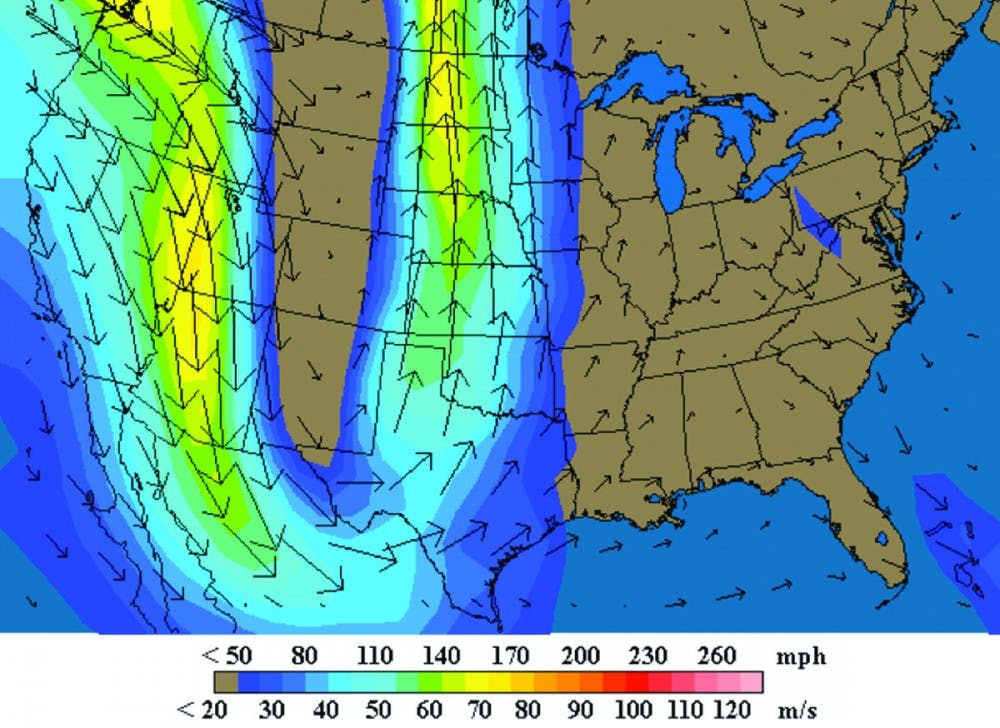Normally, spring arrives during the months of April and May, but this year things are a little different.
It is March and spring has arrived. The flowers are blooming en masse, the grass is becoming a vibrant color of green and the wonderful smell of cow manure has officially taken over Shippensburg.
As the temperature rises, students and local residents have been wondering why spring has come so early. Sean Cornell of the geography and earth science department at Shippensburg University has the answer — jet streams.
Cornell and many other professionals concluded that the way the positioning of the jet streams, which are the upper level winds that move air masses around and normally go to the south, are working backward.
The jet streams usually move from the south and we get the weather from the north and the west.
However, this year the streams are instead pushing toward the north and it is bringing the warm air masses from areas in the south, like the Gulf of Mexico.
Although the jet streams are a proven theory, there have been many other speculations why the weather has been so warm.
A common theory that scientists are investigating, but have yet to prove, is that the early warm weather is an outcome of the 2010 BP oil spill.
The spill spewed millions of gallons of oil and has yet to be completely cleaned. People have been blaming the dark color of the oil in the Gulf of Mexico of absorbing the heat. By absorbing the heat, the Gulf of Mexico has been radiating its warmth and pushing its way up north.
Another theory that is being contemplated is that the solar flares, the quick eruption of the high energy radiation from the sun’s surface, also have an influence on the warm weather. The argument is the solar winds are affecting the atmosphere causing this early spring weather.
So, although there are many speculations that global warming is occurring, the fact is that Shippensburg is not the only place that is experiencing the ongoing March heat wave.
The jet streams are also causing cities like Chicago and Minnesota to reach record high temperatures.




The Slate welcomes thoughtful discussion on all of our stories, but please keep comments civil and on-topic. Read our full guidelines here.